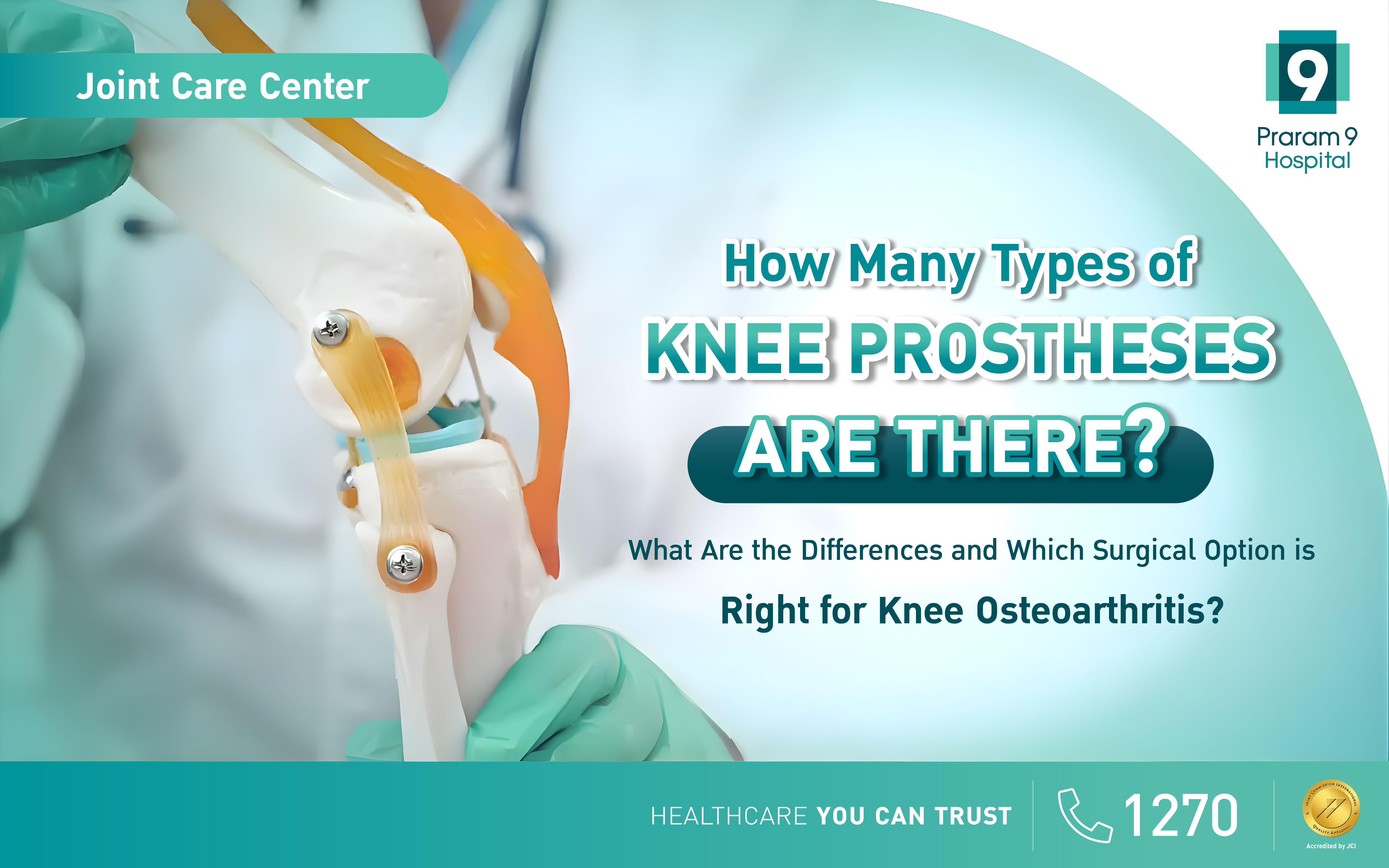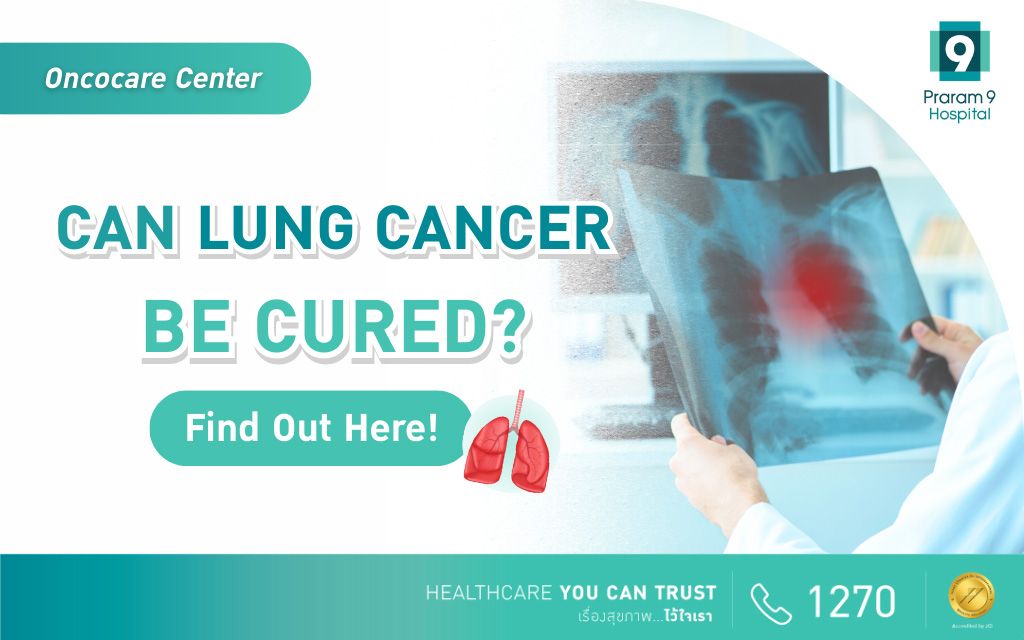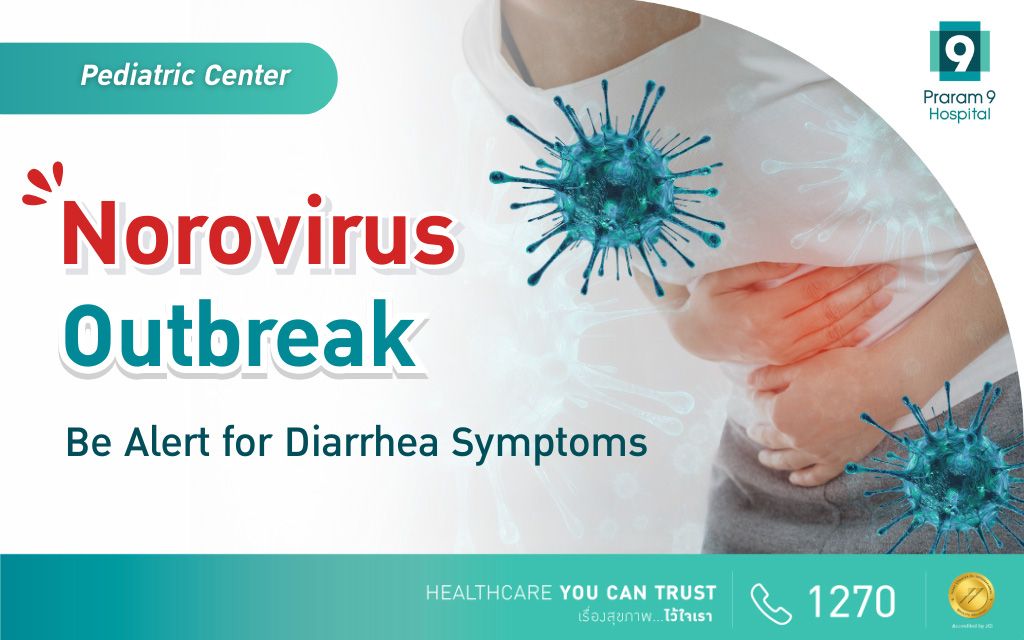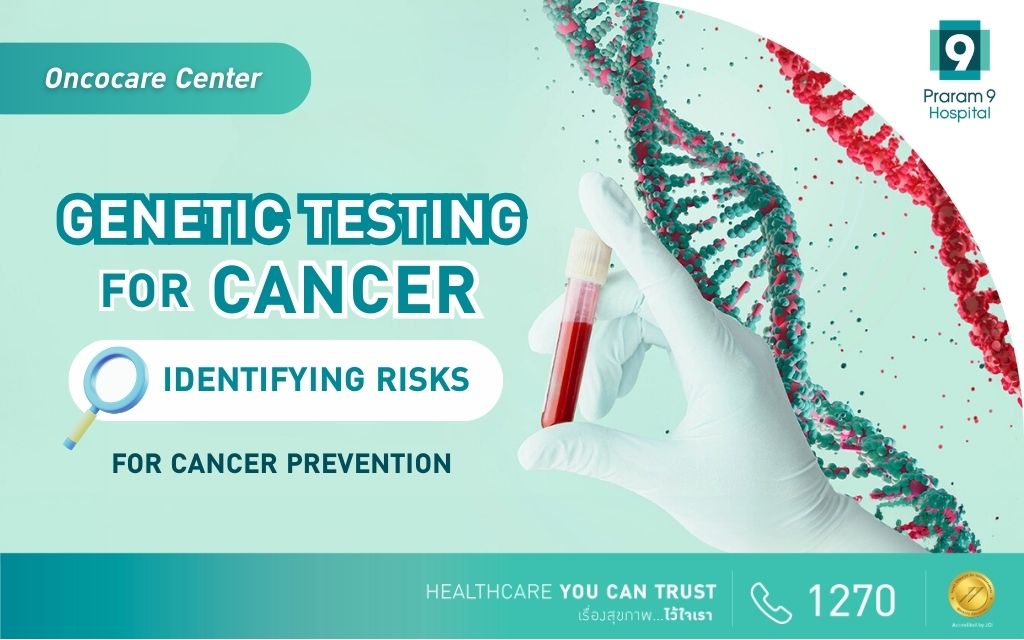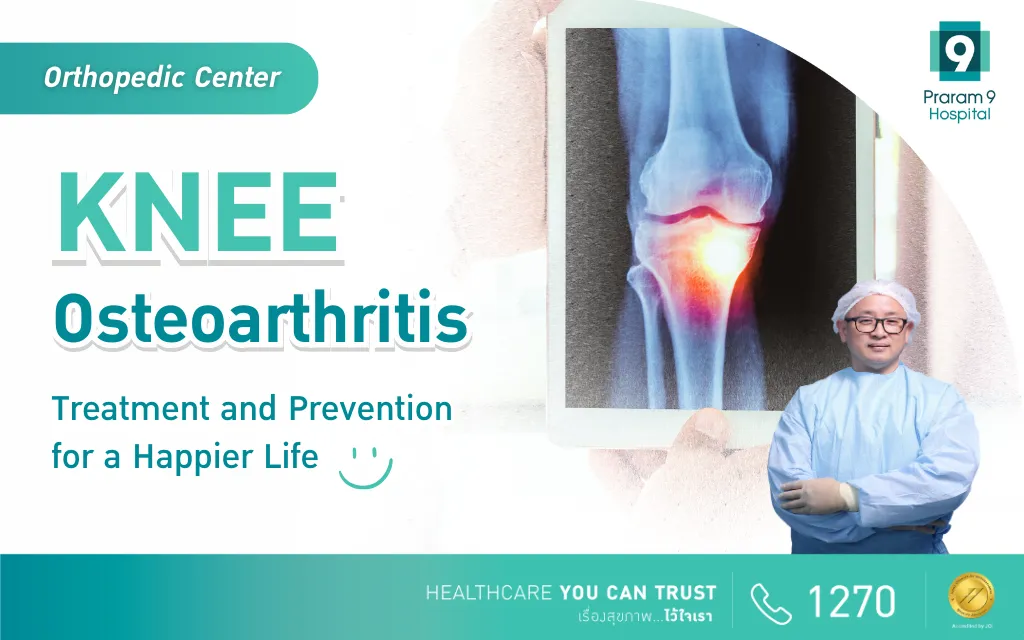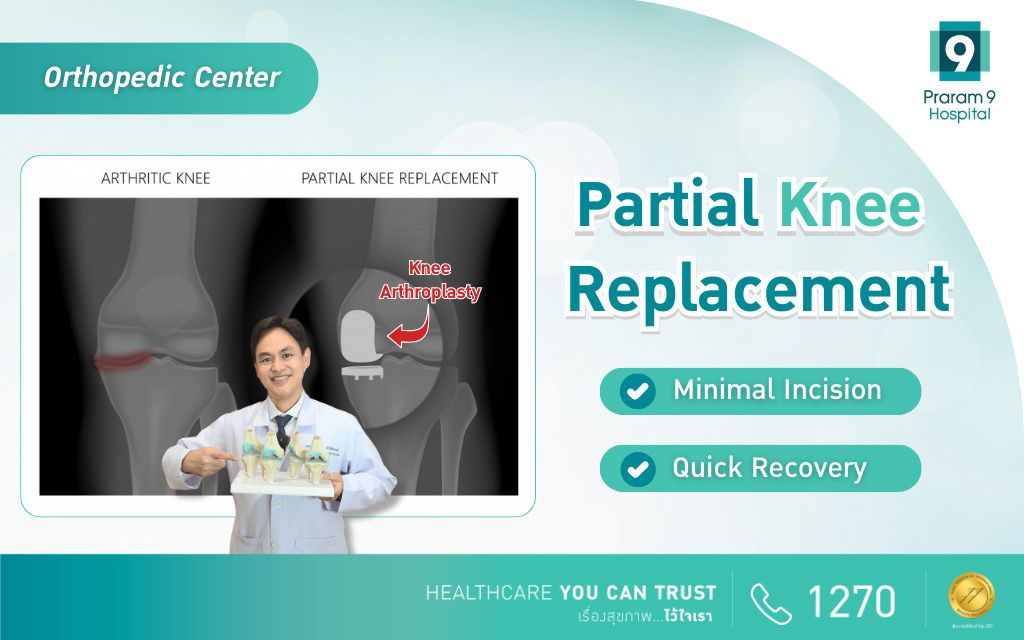Health Articles
Knowledge
“Prostate cancer” The silent threat to middle-aged men. Early detection leads to successful treatment.
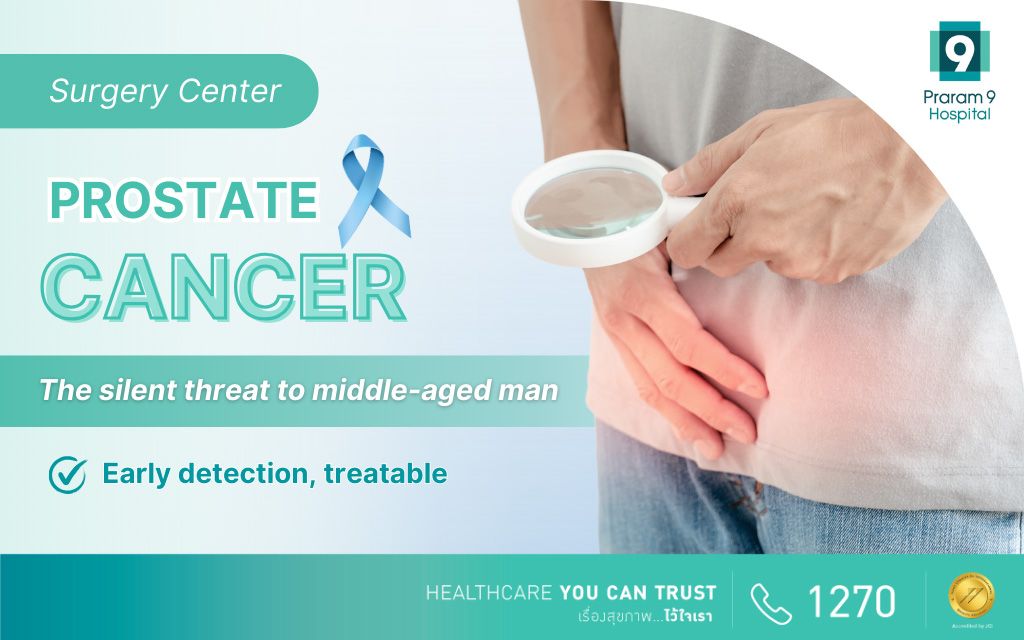
Prostate cancer is a common type of cancer and is the fourth most frequently diagnosed cancer among Thai men, particularly the elderly. Most patients are between 60 and 79 years old. Therefore, elderly men should undergo screening for prostate cancer to help prevent its development.
What Causes Prostate Cancer?
The prostate is a male organ located around the urethra in the pelvic region, beneath the bladder. Its function is to produce a fluid that nourishes and helps transport sperm. The prostate tends to enlarge with age, which can obstruct the urethra and lead to difficulties with urination. This condition is common among the elderly but distinct from prostate cancer.
Prostate cancer develops from abnormal cells in the prostate that divide uncontrollably and rapidly. This can cause obstruction of the urinary tract and damage the normal tissues of the prostate. If not detected early, the cancer can spread to other organs.
The exact cause of prostate cancer is unclear, but it is known to be related to factors such as diet, genetics, and ethnicity. Data shows that the incidence of prostate cancer is nearly five times higher in Europe compared to Asia. However, prostate cancer should not be overlooked in Asian countries like Thailand, where it ranks as the fourth most common cancer among men.
Is Prostate Cancer Dangerous?
Prostate cancer is indeed considered a dangerous condition because it is a malignant tumor. If left untreated, it can progress to advanced stages where it spreads to surrounding organs or travels through lymphatic or blood vessels to other parts of the body. For example, if the cancer spreads to the bladder, it may cause blood in the urine, or if it spreads to the bones—its most common site of metastasis—the patient might experience severe bone pain and fractures. In cases where the cancer has spread throughout the body, patients may suffer from severe fatigue, rapid and unexplained weight loss, and ultimately, it can lead to death.
Risk Factors for Prostate Cancer
- Age: The risk of developing prostate cancer increases with age.
- Ethnicity: Genetic causes are not fully understood, but African descent individuals have a higher risk of prostate cancer.
- Family History: The likelihood of developing prostate cancer is higher if there is a family history of the disease, especially in close relatives (parents, siblings, or children) who have had prostate cancer or carry genes associated with increased cancer risk (e.g., BRCA1 or BRCA2).
- Obesity: Being overweight or obese is also considered a risk factor for prostate cancer.
Symptoms of Prostate Cancer
As mentioned earlier, prostate cancer results from abnormal cell growth in the prostate, leading to its enlargement. A concerning aspect of prostate cancer is that most patients do not experience symptoms in the early stages, which often results in delayed medical consultation. Symptoms typically become noticeable when the tumor grows and presses on the urethra, causing issues such as:
- Difficulty urinating
- Weak urine stream or abnormal urination patterns
- Pain during urination
- Frequent urination, especially at night
Stages of Prostate Cancer
- Stage 1: The cancer is small and cannot be detected through a digital rectal exam. It is often found accidentally during surgery or biopsy, especially if blood tests show elevated prostate-specific antigen (PSA) levels. At this stage, patients usually have no symptoms.
- Stage 2: The cancer has grown larger but remains confined to the prostate. It can be detected through a digital rectal exam. Patients may still not experience any noticeable symptoms.
- Stage 3: The cancer has grown large enough to block the urinary tract and has spread beyond the prostate. It can be felt during a digital rectal exam. Symptoms may include frequent urination, blood in the urine, difficulty urinating, and in some cases, urinary retention.
- Stage 4: The cancer has spread to lymph nodes, bones, or other organs. Symptoms can include frequent urination, difficulty urinating, urinary retention, blood in the urine, back pain, bone pain, weight loss, fatigue, and in some cases, paralysis due to cancer spreading to the spine and causing fractures.
Diagnosis of Prostate Cancer
The following methods are commonly used for diagnosing prostate cancer:
- Digital Rectal Examination (DRE): The doctor examines the prostate by inserting a finger into the rectum to assess the size, shape, and firmness of the prostate gland.
- Blood Test for Tumor Markers: The key tumor marker for prostate cancer in the blood is Prostate-Specific Antigen (PSA). Elevated levels of PSA can indicate the presence of prostate cancer.
- Transrectal Prostate Ultrasound (TRUS): This procedure uses an ultrasound probe inserted into the rectum to visualize the prostate and assess its characteristics.
- Biopsy: A biopsy involves taking a tissue sample from the prostate using a needle inserted through the rectum. The sample is then examined by a pathologist to determine if cancer cells are present.
Treatment of Prostate Cancer
Prostate cancer can be treated using several methods, depending on the stage and characteristics of the cancer:
- Surgery: Suitable for patients with Stage 1 and Stage 2 prostate cancer, where the cancer is confined to the prostate and has not spread to other organs.
- Radiation Therapy: This involves using radioactive materials and external radiation. In early stages, radiation therapy can be as effective as surgery.
- Hormone Therapy: Since male hormones (androgens) stimulate cancer cell growth, hormone therapy aims to reduce hormone levels or block their effects to slow down or stop the growth of the cancer.
- Chemotherapy: This method has shown improved results over time. Doctors plan treatments to minimize side effects and unwanted reactions. For advanced prostate cancer that has spread, a combination of treatments may be used, such as radiation combined with medication.
Additionally, for cases where the prostate is enlarged but not cancerous, treatment may involve reducing the size of the prostate using hot steam (a procedure known as steam therapy). This minimally invasive method involves inserting a needle through the prostate and delivering hot steam to shrink the gland. It does not require general anesthesia and can be performed on an outpatient basis. This approach is beneficial for patients with conditions such as stroke or heart disease, as it does not require long-term discontinuation of blood thinners or antiplatelet medications.
Who Should Be Screened for Prostate Cancer?
Prostate cancer is commonly found in men over the age of 40, with the likelihood increasing significantly for those over 60. Early detection, even when symptoms are not present, is beneficial as it allows for potentially curative treatment. Recommended groups for prostate cancer screening include:
- Men aged 50 and older
- Those with risk factors, such as smoking or obesity
- Individuals with a family history of prostate cancer
Screening is often part of annual health check-ups for men over 50 and may include evaluating for abnormalities in the urinary system.
Foods That Affect Prostate Cancer
Research on diet and its impact on prostate cancer growth has identified several foods that may help reduce the risk of prostate cancer, including:
- Coffee
- Lycopene in tomato sauce
- Vegetable oils
- Fish
- Cruciferous vegetables such as broccoli, cauliflower, cabbage, and kale
Conversely, some foods might increase the risk of prostate cancer, such as:
- Eggs
- Cow’s milk
Self-Care for Prostate Cancer Patients
When diagnosed with prostate cancer, following the treatment plan prescribed by your doctor consistently is crucial. Maintaining a positive outlook is also essential to support the fight against the disease and complete the treatment. Self-care should include:
- Regular Monitoring: Keep track of your symptoms and attend scheduled medical appointments to monitor the progress of the disease.
- Health Maintenance: Focus on both physical and mental health. Consume a balanced diet with sufficient energy and nutrients from all food groups.
- Radiation Therapy Care: If undergoing radiation therapy, follow your doctor’s instructions closely to minimize side effects and protect surrounding tissues.
- Planning and Communication: Discuss life plans and treatment decisions with family to ensure mutual understanding. If a cure is not possible, consult with your doctor about palliative care options to maintain quality of life through the end stages.
Prevention of Prostate Cancer
- Eat a Healthy Diet: Focus on a balanced diet rich in nutrients and low in unhealthy fats.
- Exercise Regularly: Aim for at least 30 minutes of physical activity per day, three times a week.
- Maintain a Healthy Weight: Avoid overweight and obesity, as being overweight is a risk factor for prostate cancer.
- Quit Smoking: Smoking is linked to an increased risk of prostate cancer, so quitting is beneficial.
- Get Screened: Regular screening for prostate cancer can increase the chances of early detection and effective treatment.
Conclusion
Although an enlarged prostate is common in older men, difficulty urinating in aging males may not just be a sign of aging but could also indicate prostate cancer. If you or someone you know is at risk, it’s important to undergo prostate cancer screening, particularly checking Prostate-Specific Antigen (PSA) levels. If there are any abnormalities in the urinary system, consulting a doctor for further investigation is recommended. Early treatment of prostate cancer can be highly effective and offers the best chance for a cure, compared to delaying treatment until the cancer has spread to other organs.
You can consult a doctor from anywhere through video calls.

